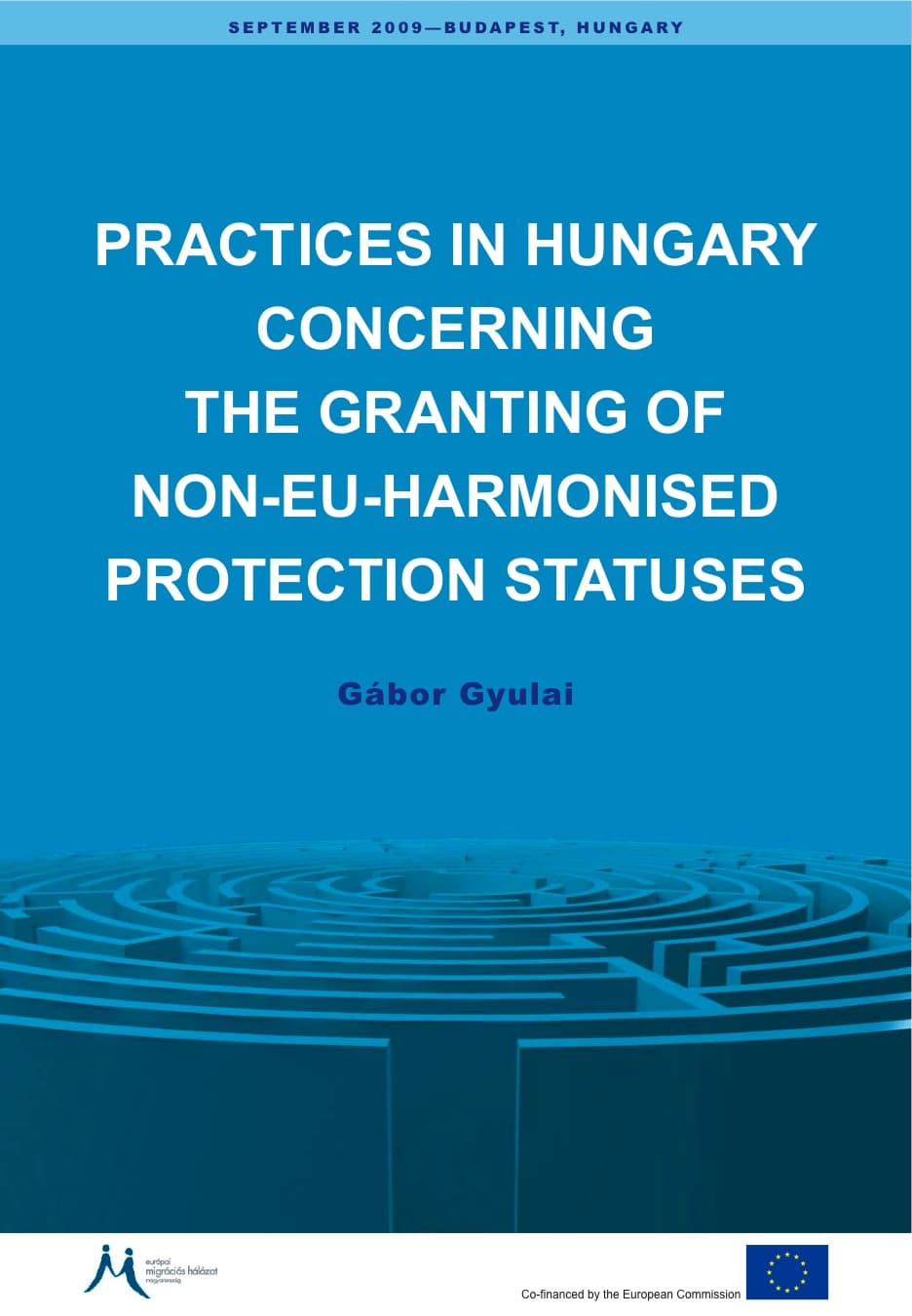Non-EU-harmonised forms of international protection in Hungary (2009)
The approximation of asylum policies is considered a key field of harmonisation within the European Union. As one of the EU’s most ambitious aims in this regard, member states have adopted in recent years a harmonised interpretation of refugee status and subsidiary protection.
Author: Gábor Gyulai
The approximation of asylum policies is considered a key field of harmonisation within the European Union. As one of the EU’s most ambitious aims in this regard, member states have adopted in recent years a harmonised interpretation of refugee status and subsidiary protection. Meanwhile, several other forms of protection, found in national legal regimes, have so far not been in the focus of community harmonisation efforts. The background of these statuses in various member states encompasses a set of different situations: non-refoulement, practical non-removability grounds, medical reasons, general humanitarian concerns, environmental catastrophes, etc.
Critics often claim that the frequent use of these “residual” statuses weaken protection standards embedded in international refugee law and the EU asylum acquis and that such diversity in national practices is clearly incompatible with the aim of harmonised asylum policies in the EU. Recognising the above problem, the European Commission requested the European Migration Network in 2009 to analyse existing non-EU-harmonised forms of international protection in all member states.
This study presents the legal framework of the four existing non-EU-harmonised protection statuses in Hungary, outlining their procedural framework and the rights they ensure, as well as highlighting the differences between harmonised and non-harmonised statuses. Furthermore, the paper also identifies the main gaps and contradictions of the current regulation with regard to non-EU-harmonised protection practices.
Funded by: Ministry of Justice and Law Enforcement, European Migration Network
